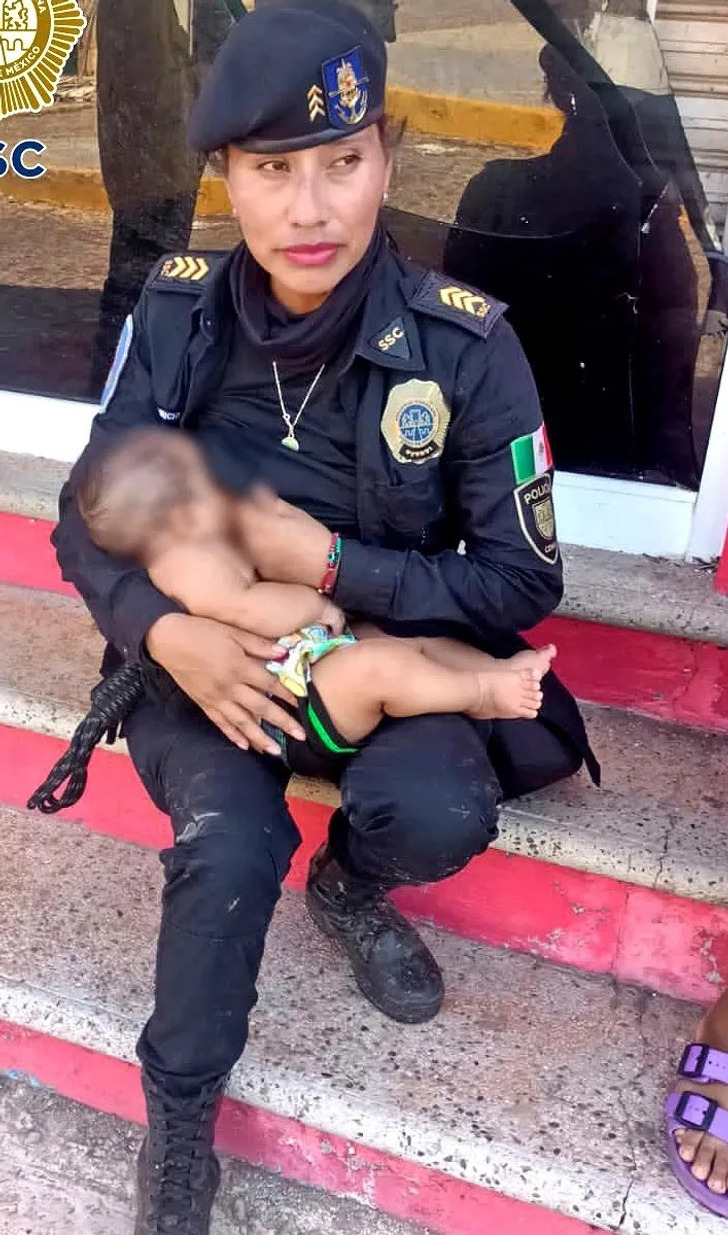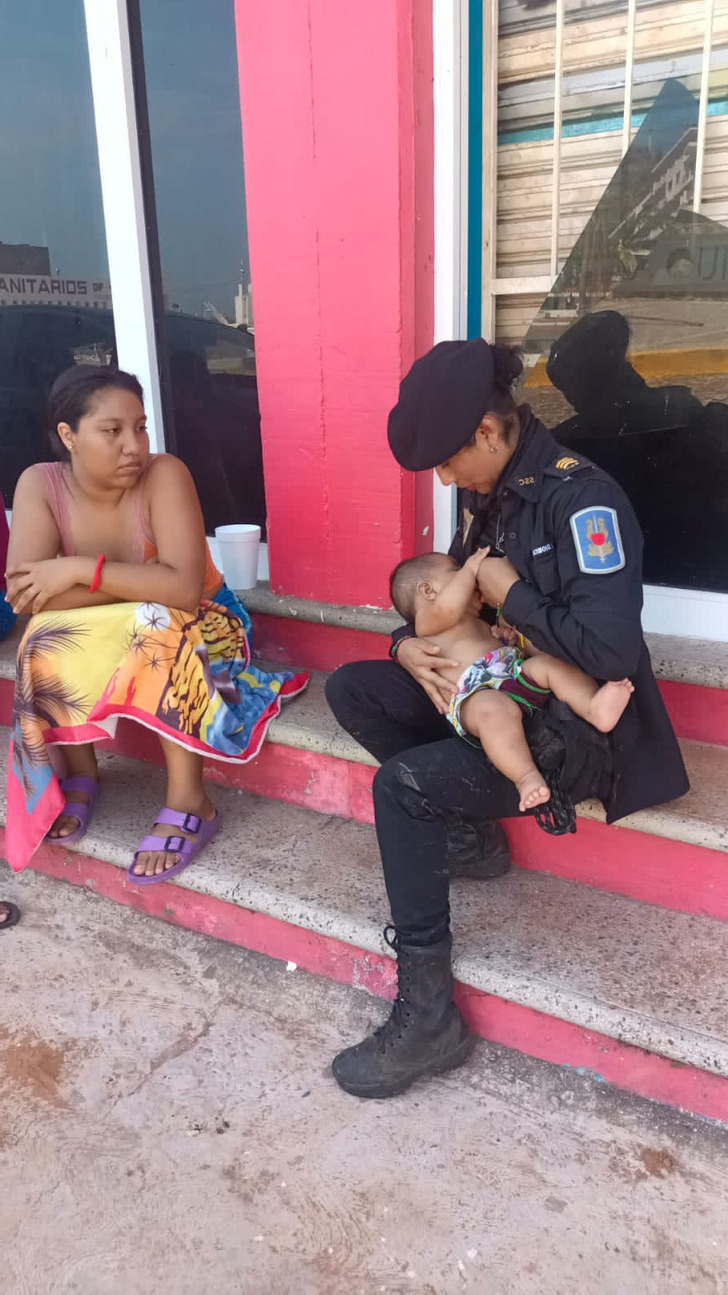In the chaos left behind by Hurricane Otis—a Category 5 storm that devastated Acapulco—one act of deeply human compassion rose above the wreckage. Amid collapsed homes, flooded streets, and countless lives in crisis, a police officer named Arizbeth Dionisio Ambrosio chose empathy over protocol. Her quiet gesture didn’t just save a life—it earned her national recognition and a well-deserved promotion.
At 33, Dionisio is not only a dedicated officer in the Mexican police force but also a mother. While deployed to support emergency operations in the aftermath of the hurricane, she came across a scene that most people would never expect to witness—let alone take action on. A four-month-old infant, desperate with hunger, was inconsolably crying. His mother, overwhelmed and unable to breastfeed, stood helpless in a sea of devastation.
Dionisio, recently having given birth herself and still able to breastfeed, made a decision that stunned those around her. She gently approached the mother, sought consent, and then breastfed the infant—providing the nourishment and comfort he so desperately needed. There was no hesitation, no concern for hierarchy or procedure. Just a mother seeing another mother in pain, and acting with humanity.
Beyond the Badge: The Biology of Compassion
What Dionisio did in that moment extends beyond a personal act of care—it reflects something deeply biological and rooted in our shared human experience. Breastfeeding is not merely a nutritional act; it also conveys warmth, trust, and survival. In disaster-stricken areas, where infants are particularly vulnerable to dehydration and malnutrition, such acts can be life-saving.
From a public health perspective, her decision represents the intersection of emotional intelligence and biological altruism. The oxytocin released during breastfeeding not only fosters maternal bonding but also reduces stress and promotes feelings of safety. For a starving infant in a traumatizing environment, this comfort may have as much value as the nutrients themselves.

Leadership That Acknowledges Humanity
Recognizing the extraordinary nature of her actions, Dionisio was promoted from “Policía Primero” to “Suboficial,” a rank that reflects both her commitment to service and the strength of her character. Promotions in law enforcement are often tied to technical skill, tactical performance, or seniority—but in this rare case, it was pure humanity that moved the ranks.

Her promotion sends a powerful message: Leadership is not only about authority; it is about care, empathy, and moral courage. At a time when institutions are often criticized for being rigid and impersonal, Dionisio’s story reminds us that true impact often comes from moments of deep compassion.
Social Impact and Public Response
The story has sparked conversations across Mexico and beyond, with many praising her selflessness and grace under pressure. In an era dominated by headlines of conflict and division, acts like Dionisio’s break through the noise, reminding society of the quiet heroes among us.

It also raises essential questions about how emergency responders are trained and supported. Should nurturing instincts and emotional intelligence be valued as highly as operational tactics? Dionisio’s actions suggest they should. Her empathy did not compromise her duty—it fulfilled it in the most human way possible.
The Science Behind Her Strength
From a physiological standpoint, Dionisio’s ability to breastfeed an unrelated infant isn’t just touching—it’s also backed by science. Research in lactation biology has shown that mothers can safely breastfeed other infants as long as they are healthy and produce adequate milk. This practice, historically known as wet nursing, has been used in various cultures for centuries to ensure the survival of children when their biological mothers were unable to nurse.
While uncommon today, especially in professional contexts, the instinct to nourish a child in need reflects a primal drive to preserve life. It’s a reminder that, underneath uniforms and social roles, our shared humanity binds us in unexpected ways.
A Lasting Legacy
Dionisio’s story will likely be remembered not just for her courage, but for the questions it raises about what it means to serve. In a moment where she could have walked past—where protocol might have dictated inaction—she chose to step forward.
Her promotion is a symbol, but her true reward lies in knowing she brought comfort to a child who could not speak for himself, and to a mother who, in her vulnerability, found unexpected grace from a stranger in uniform.
In a world where crises are increasingly common, it is stories like these that restore faith—in each other, and in the institutions meant to protect us.
Source: BBC
